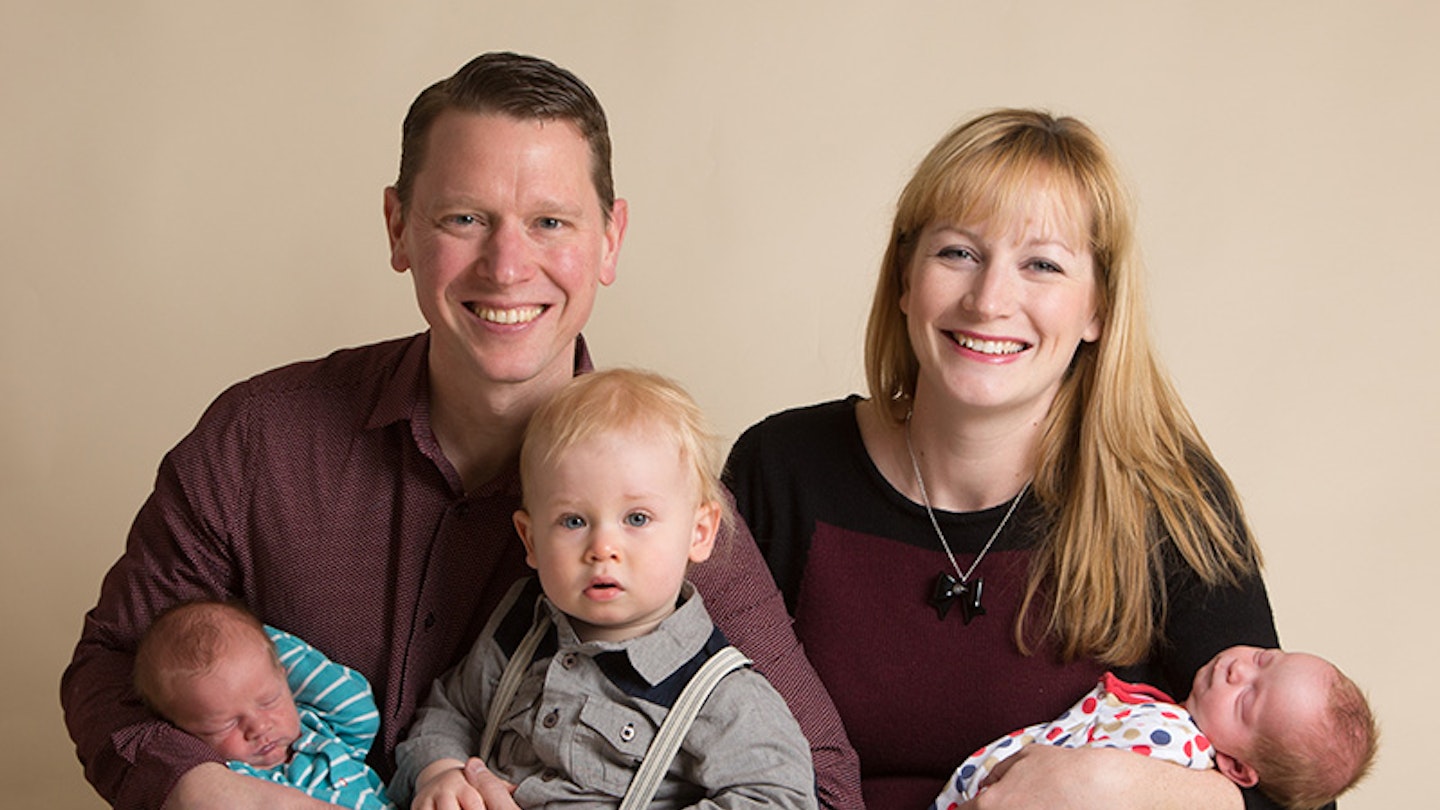Zoe Hiljemark, 34, a PR consultant, lives in Poole with husband David and children Karl, 3, and twins Isaac and Sofia, 22 months.
The first few months of pregnancy were tiring, but I put the extra exhaustion and dizziness down to carrying twins. Caring for my toddler took it out of me, and even walking up stairs left me breathless.
When I was six months, a scan showed the babies were measuring large and, given my first son weighed almost 10lbs at birth, the doctors sent me for a glucose tolerance test. My blood was taken after overnight fasting, and again after a sweet drink. It showed that my body wasn't processing the glucose properly and that my sugar levels were high, meaning I had gestational diabetes.
I followed the advice of a dietician and cut out processed sugar completely, as well as avoiding natural sugar like fruit
It was a shock, especially since I don't fit the common criteria, like being overweight. I was gutted but determined to manage my condition. I followed the advice of a dietician and cut out processed sugar completely, as well as avoiding natural sugar like fruit. Testing my blood sugar levels daily using a finger prick machine showed my glucose levels still hadn't stabilised so I was prescribed insulin. I had to inject myself daily, as well as still managing my diet. Thankfully, it worked. My glucose levels normalised, the dizziness and exhaustion improved and I began to feel more positive.
After a forceps delivery first time round, and this complication now, I wanted a quick, controlled birth
The doctors wanted me to try for a natural birth but I requested a c-section. After a forceps delivery first time round, and this complication now, I wanted a quick, controlled birth. So one evening at 37 weeks, David took me to be admitted onto the ward for an overnight stay. My c-section was scheduled for first thing the following morning. I was nervous, enormous and ready to meet my babies. That morning David returned to the ward. After being monitored, I changed into a surgical gown and at 9am, David by my side, I waddled into theatre. It felt scary, exciting and surreal.
Sitting on the bed I was instructed to lean over a pillow while the anaesthetist injected the spinal block. By now I was really emotional, shaking and crying. David and the doctors reassured me that everything would be OK. As the anaesthetic took effect, I was laid back and my legs began to feel numb, which was really odd. I tried to relax and put my faith in the staff. There were about 12 people in theatre, and they were all calm and friendly.
David held my hand as a screen was put up in front of my bump. As the surgeon started work, I closed my eyes and visualised being on a warm beach. A couple of minutes later at 9.30am, I heard a baby crying. I looked up to see my first twin boy being taken to the side of the room to be checked. ‘He's fine,’ one of the doctors told me, and I felt huge relief. But there was no time to celebrate. Within seconds, the surgeon produced another baby, a little girl. Again, I heard crying and doctors reassurance that she was healthy.
While our little girl Sofia was being checked, a midwife brought over Isaac, wrapped snugly in a blanket. David held him close to me as I cried with relief and sheer joy. Sofia was brought over too and I was filled with even more happiness. Both twins were perfectly healthy. After everything I'd been through it felt like a miracle.
Sofia weighed 6lb 11oz and Isaac was 6lb 13oz, which is fairly large for twins, although none of the medical staff linked it directly to my GD. To be safe, both babies were tested for diabetes while we were in hospital but the results were negative. After a week, my test was negative too. I'm now at greater risk of type two diabetes, which is a niggling worry, and means I'm extra careful about eating well and exercising regularly. But I'm just relieved that my GD was picked up, managed so well, and that I was able to give birth to such perfect twins.
Three things I'd tell my friends
-
If you're diagnosed with GD, be honest about what you've eaten and acknowledge peaks in sugar levels with both yourself and your dietician or consultant.
-
Exercise more if possible. Simply walking slowly helped me to keep active and reduce my sugar levels.
-
There’s a lot of misleading information about GD online, so stick to reputable websites like diabetes.org.uk
